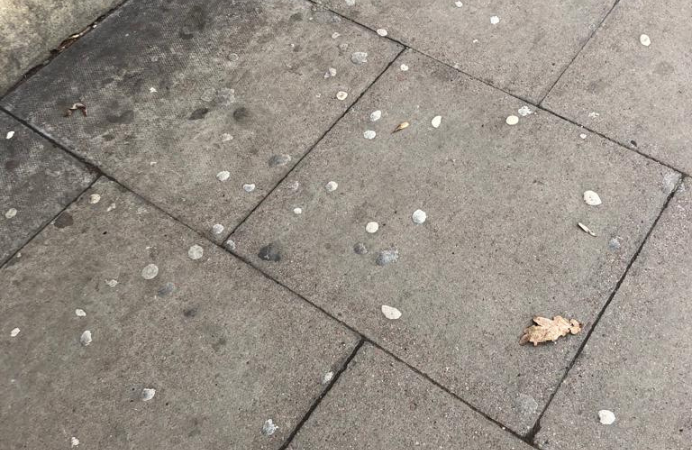Ealing Council is putting plans in place to tackle chewing gum litter on streets after receiving a £25,000 grant to help solve the problem.
The council successfully applied to the Chewing Gum Task Force, run by environmental charity Keep Britain Tidy, for funding to clean gum off pavements and prevent it from being littered again.
The funding will be used to purchase machines specially designed to remove gum from the streets, as well as behaviour changing posters, banners, and floor stencils, which are an effective way of getting out key messages.
By combining targeted street cleaning with signage to encourage people to bin their gum, Ealing hopes to reduce gum littering by at least half in the targeted areas.
The work will begin with action outside some of our main transport links, Greenford Station, Northolt Station, and South Ealing Station, which are among the areas worst affected by the problem.
Councillor Deirdre Costigan, Ealing Council’s deputy leader and cabinet member for climate action, said: “Chewing gum is a blight on our streets, and with thousands of people travelling through these stations every day, we don’t want gum stains to be the first and last thing they see of our town centres. With this funding we will put in place a targeted campaign to remove littered gum and to educate residents and visitors on disposing of their gum responsibly.”
The annual clean-up cost of chewing gum for councils in the UK is estimated at around £7 million and, according to Keep Britain Tidy, around 77% of England’s streets and 99% of retail sites are stained with gum.
Allison Ogden-Newton OBE, Keep Britain Tidy’s chief executive, said: “Chewing gum litter is highly visible on our high streets and is both difficult and expensive to clean up, so the support for councils provided by the Chewing Gum Task Force and the gum manufacturers is very welcome.
“However, once the gum has been cleaned up, it is vital to remind the public that when it comes to litter, whether it’s gum or anything else, there is only one place it should be – in the bin – and that is why the behaviour change element of the task force’s work is so important.”







